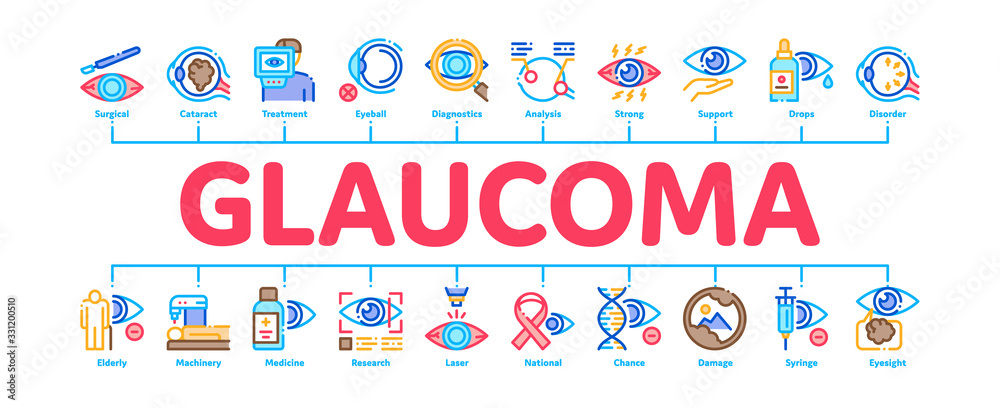
Glaucoma can damage optic nerve in your eye. It becomes worse over time. A rise in internal ocular pressure is typically the cause.Glaucoma typically runs in families. It typically doesn't appear until much later in life. Increasing intraocular pressure in your eye can injure the optic nerve, which carries images to your brain. If glaucoma develops, it can cause total blindness or irreversible vision loss within a few years.
Most glaucoma patients don't have any pain or early warning signs. Your eye doctor will be able to identify and treat glaucoma before it results in long-term vision loss thanks to routine eye exams. Once vision is lost, it cannot be gained again. However, lowering your eye pressure can assist you in keeping your current degree of vision. The majority of glaucoma patients who take their medications as prescribed and have regular eye exams are able to keep their vision.
Most people with open-angle glaucoma don't have any symptoms. Typically, symptoms don't appear until much later in the course of the illness. Glaucoma is often referred to as the "sneak thief of vision" as a result of this. Typically, a loss of peripheral vision is the main symptom. The signs and symptoms of angle-closure glaucoma often manifest earlier and are more severe. Damage could happen suddenly. If you notice any of these signs, get medical help right away:
The experts developed three strategies.
The doctors recommend eye drops, tablets, syrups, or injections if the patient's condition can be controlled by medication.
The YAG peripheral iridotomy is the glaucoma laser procedure that is carried the most frequently (YAG PI). Patients with closed or narrow angles are treated with this procedure. In order to stop a sudden increase in pressure or a glaucoma "attack," it usually needs to be done in both eyes. After a YAG PI, the patient may or may not require additional medications. To improve pressure control, laser trabeculoplasty utilising an Argon or YAG laser may be done in a few specific locations. An alternate filtration channel is made during glaucoma surgery in order to drain the aqueous and regulate the pressure.
The most common surgical treatment for glaucoma is trabeculectomy, or "Trab." To drain the aqueous and regulate pressure during trabeculectomy, the surgeon constructs an alternate filtration aperture beneath a scleral and conjunctival flap. The use of sophisticated vitreoretinal techniques and the implantation of a valve or glaucoma filtration device (for regulated filtration) are some other recent advancements in glaucoma surgery. Surgery using these methods offers patients with advanced, uncontrolled glaucoma a great deal of hope.
1. Can glaucoma medications produce side-effects?
Certain people can experience the side effects of glaucoma drugs, yes. Anti-glaucoma eye drops can itch, make eyes red, elevate heart rate, dry mouth, lengthen eyelashes, noticeably affect the colour of the eye and the skin around it, irritate, and other things.
2. Does using a computer or smart phone while work make my glaucoma or eye pressure worse?
Not at all, no. You may use digital screens as much as you find comfortable as long as you are applying eye drops as directed and getting checkups as needed. To avoid eye muscle tiredness after lengthy periods of labour, it is a good idea to take a rest.
3. Can glaucoma be cured?
Although glaucoma cannot be cured, additional harm can be avoided. Early intervention may occasionally undo the harm and restore a better vision field or optic nerve function, but only in certain circumstances, such as those involving youngsters.
4. Is coffee bad for glaucoma?
More than 2-3 cups of coffee per day is considered excessive and should be avoided because it raises eye pressure.
© Copyright 2023 Santhosh Eye Hospital.